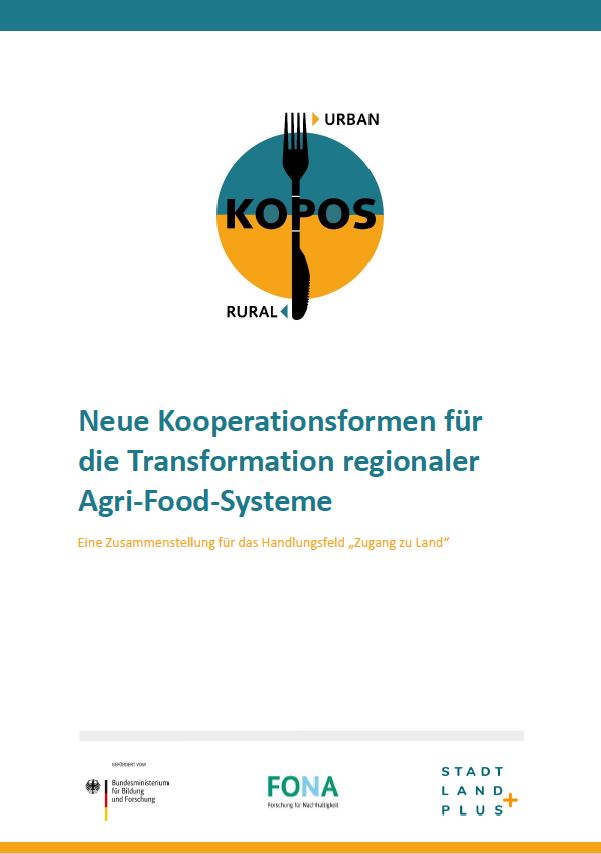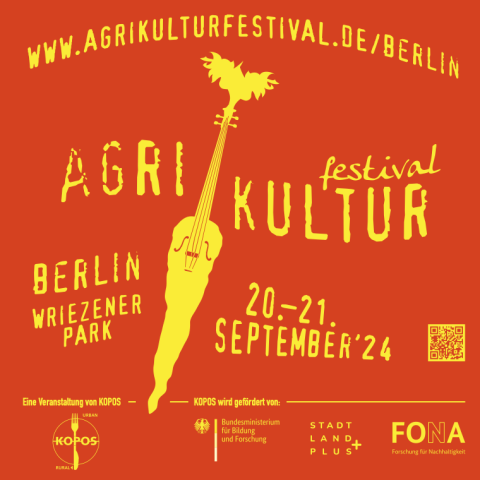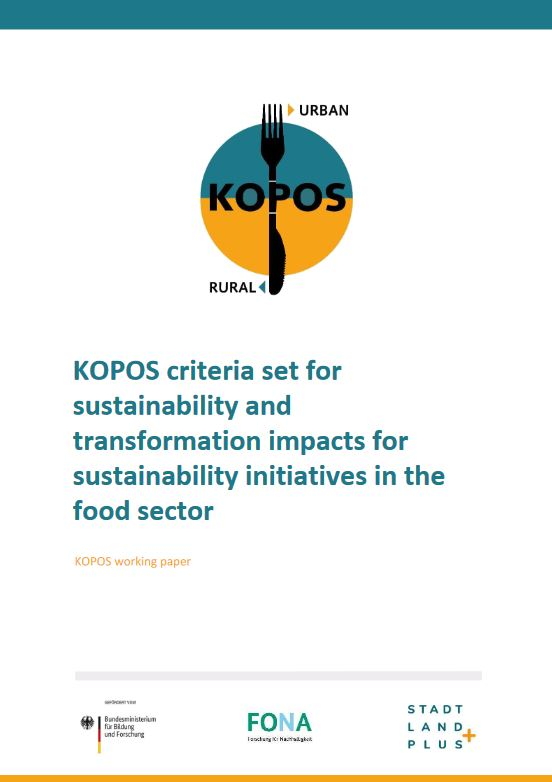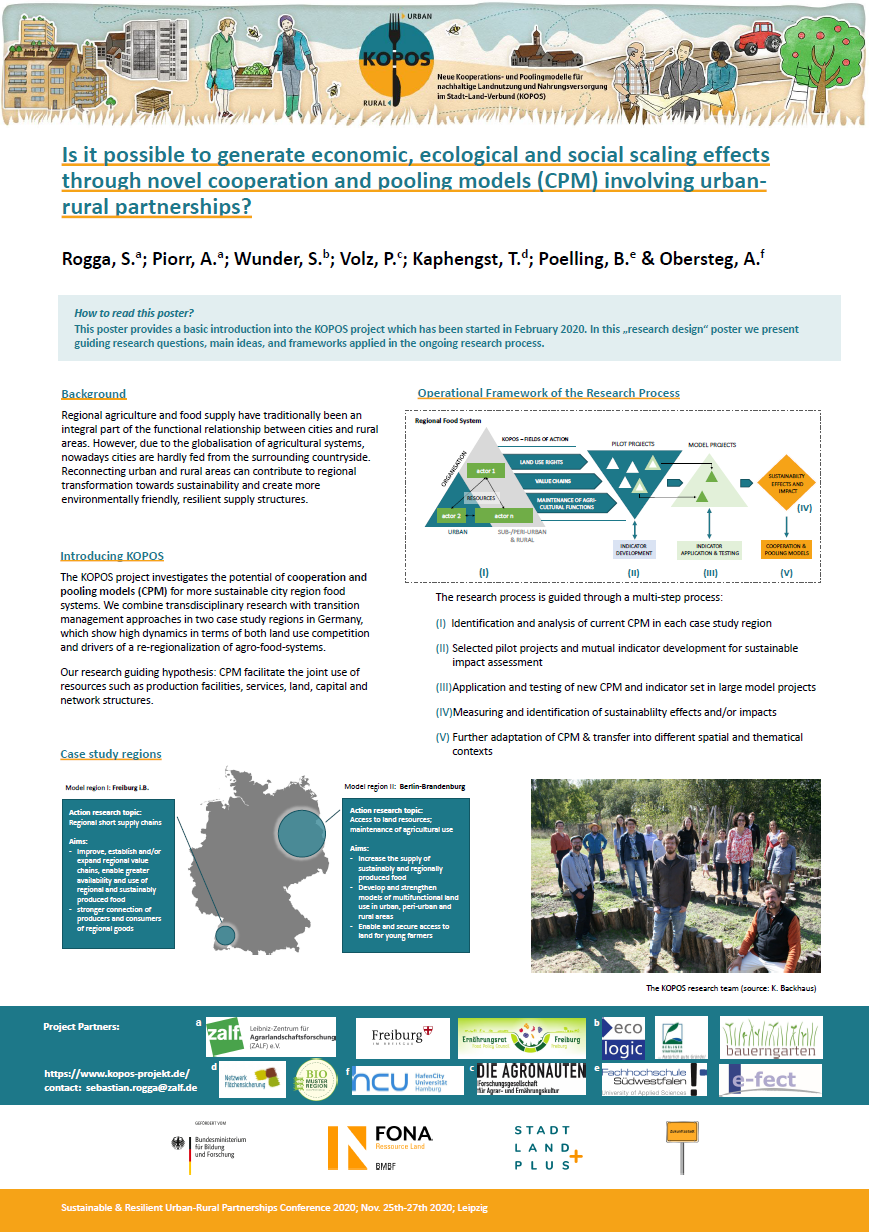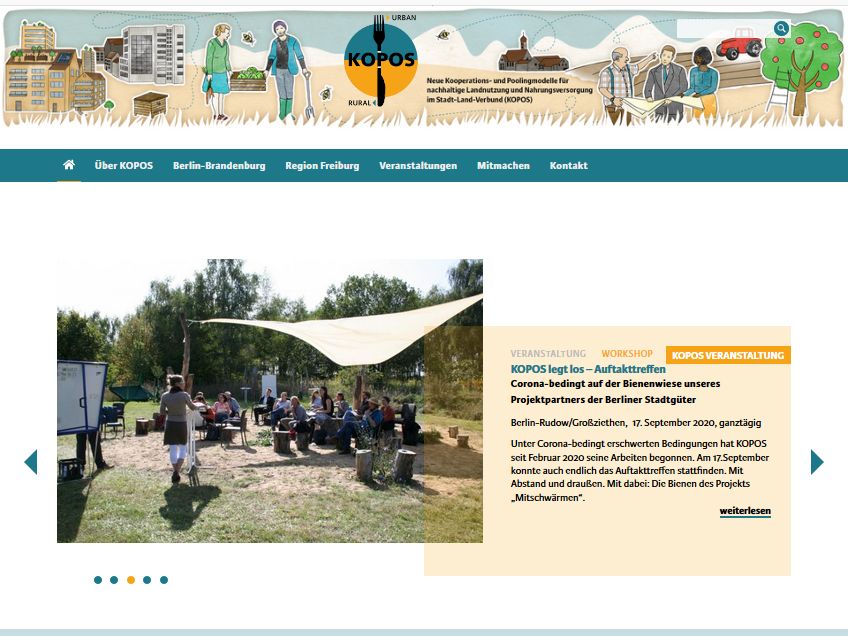New Cooperation for Sustainable Landuse and Food Supply in Urban-Rural Areas (KOPOS)
- Project
- Duration
-
-
The KOPOS project is funded by the German Federal Ministry of Education and Research (BMBF). Its goal is to establish regional supply structures in order to increasingly reconnect urban and rural areas and to practice environmentally friendly management. In the project regions of Freiburg i.Br. and Berlin-Brandenburg, KOPOS is investigating how cooperation between regional actors can help to build more regional supply structures and secure access to land for sustainable cultivation.
Background
Regional food supply and value creation have long been an important component of urban-rural relations. Agricultural systems, however, have become increasingly global and value chains have grown longer. As a result, inhabitants of cities nowadays receive fewer and fewer food supplies from the surrounding rural areas. This has far-reaching implications for urban-rural relations.
Reconnecting urban and rural areas through regional supply structures has great potential for sustainability. It involves social aspects as well as the environment and food security. For example, regional supply can stimulate infrastructure and opportunities for participation in structurally weak surrounding areas. Having a regional supply also increases opportunities to help shape the food system socially. Furthermore, sustainable, regional agriculture can counteract the 'dying of the farms' and promote living cultural landscapes and open spaces with a high quality of recreation and life.
Reconnecting urban and rural areas through value creation poses challenges. These include a lack of economies of scale and increasing pressure on land prices, which makes it difficult for smaller farmers and lateral entrants to enter the market.
Goals of the project
KOPOS investigates how cooperation between regional actors can help to establish more regional supply structures. Such cooperation can, for instance, be used to pool resources such as means of production, services, land, capital and network structures, thus enabling regional food production and marketing. KOPOS stands for "New cooperation for sustainable land use and food supply in urban-rural areas" ("Neue Kooperations- und Poolingmodelle für nachhaltige Landnutzung und Nahrungsversorugn im Stadt-Land-Verbund" in German).
The project sets two focal points and explores these in project regions: In Berlin-Brandenburg, the focus is on access to and the securing of land, which is becoming increasingly scarce and expensive in metropolitan areas, but is indispensable for regional supply. In Freiburg im Breisgau and the surrounding region, the focus is on establishing and expanding short value chains. In order to shorten and regionalize value chains, cooperation between producers, processors, retailers and consumers is essential. KOPOS first analyzes the status quo of food supply in the region. Current challenges and opportunities for action are then identified, and pilot projects and regional practical laboratories are set up to work together with actors in the region.
Ecologic Institute as part of KOPOS
The Ecologic Institute team coordinates the communication and transfer of the results so that the KOPOS experience can be built upon in other regions as well as at the national level. This includes the networking of stakeholders, the conceptual design and implementation of study tours, conferences and workshops. In addition, Ecologic Institute works on the development of impact indicators and political recommendations for action.



